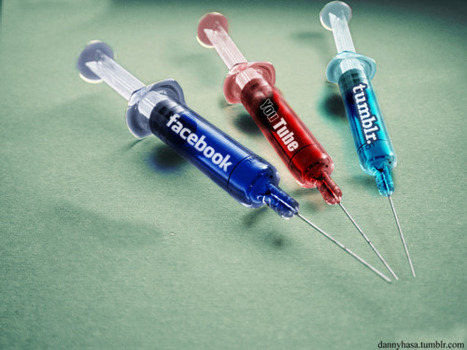A study arousing interest online Friday found that checking Facebook or Twitter is more alluring than sex for those immersed in Internet Age lifestyles.
Research and publish the best content.
Get Started for FREE
Sign up with Facebook Sign up with X
I don't have a Facebook or a X account
Already have an account: Login

 Your new post is loading... Your new post is loading...
 Your new post is loading... Your new post is loading...
|
|



























